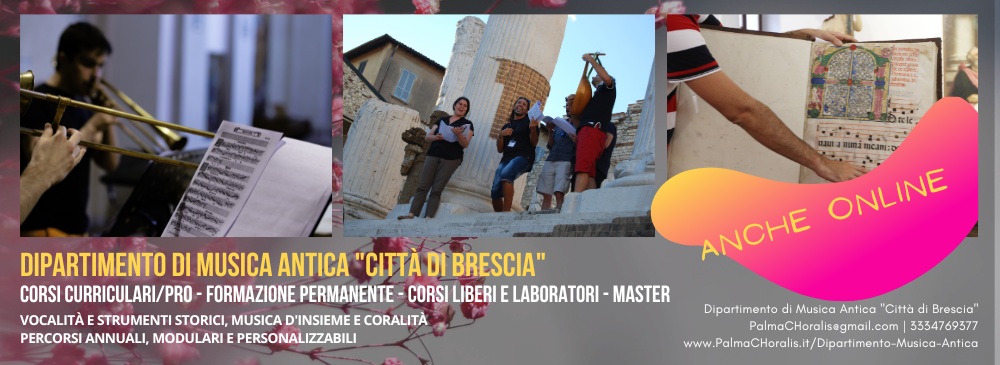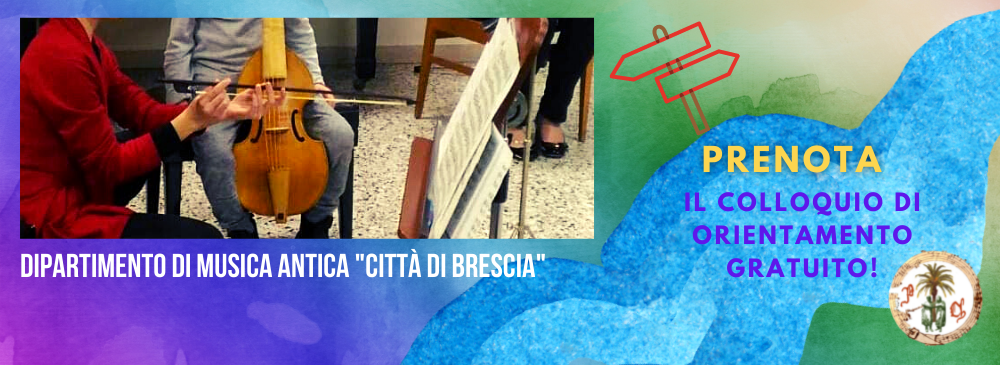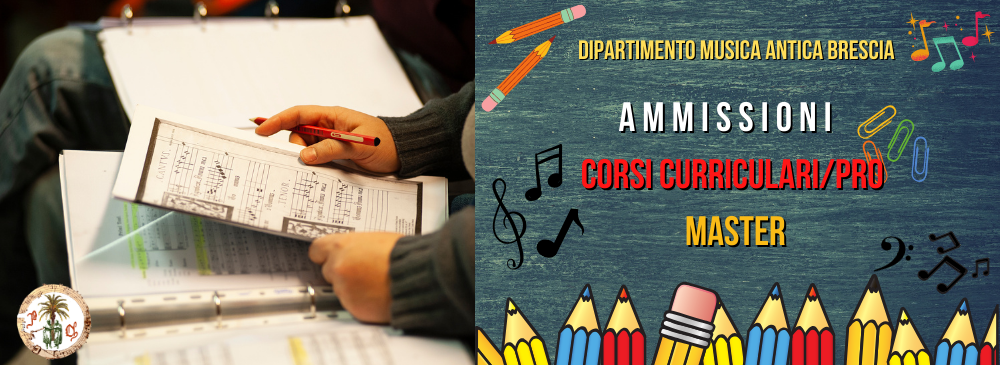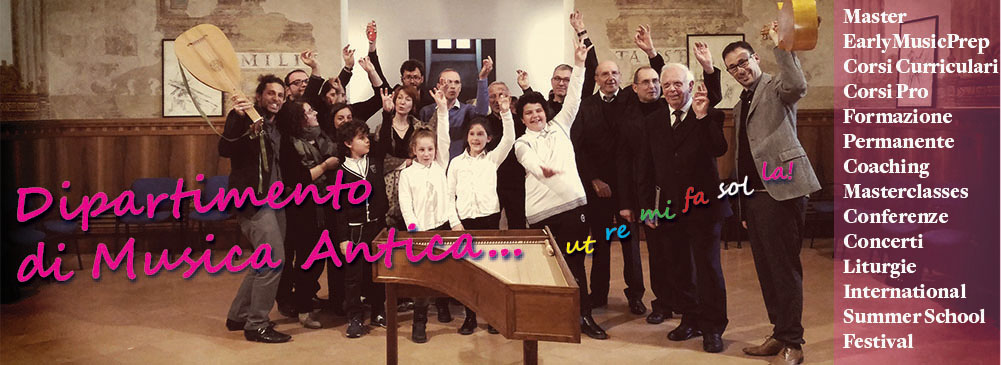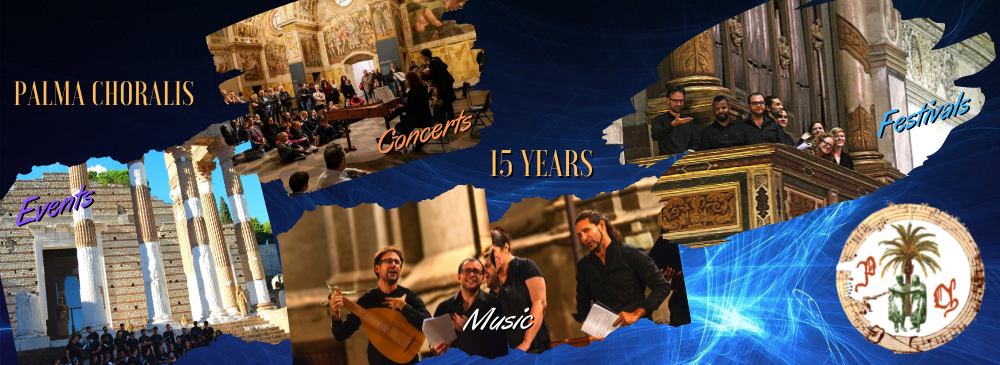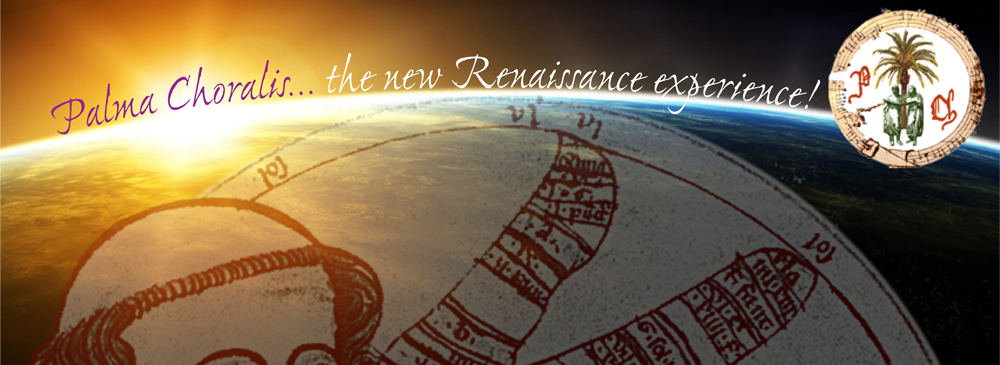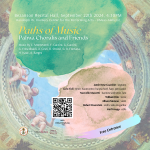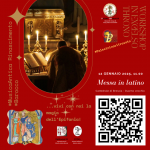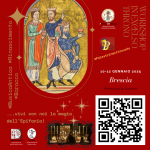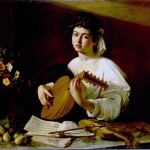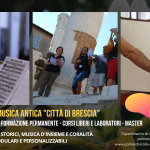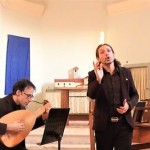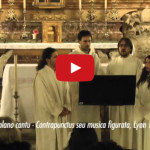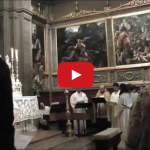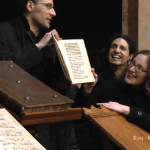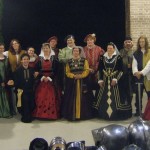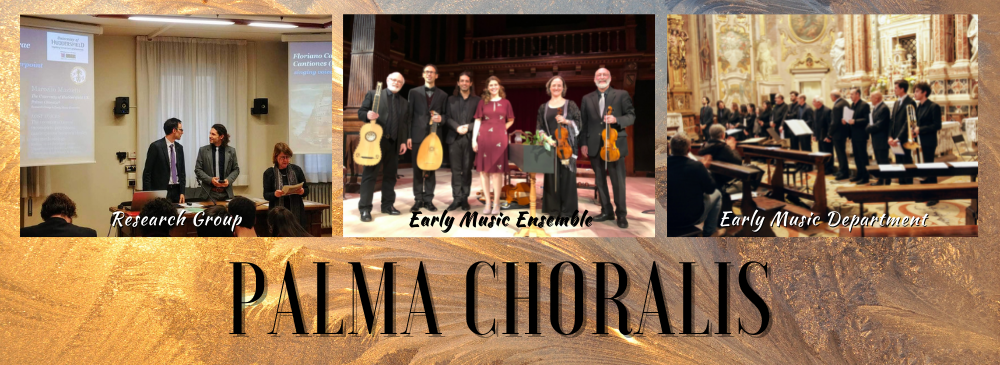
Palma Choralis® was formally founded in 2006 by Marcello Mazzetti and Livio Ticli, who are also the musical and artistic directors. Palma Choralis consists of a Research Group and an Early Music Ensemble, which work in deep synergy, and welcome both scholars and musicians from Italy and all over the world.
BRIEF INTRODUCTION • In order to carry out cutting-edge research on the Artes, a wide range of fields and activities are covered such as pedagogy and education, concerts, church services, spectacles and theatre. Since the beginning, the Ensemble and the Research Group have been appreciated in the artistic and academic landscape both nationally and internationally for the «successful combination of careful research on Italian musical sources, performance and high-profile outreach activity» (Italian Madrigal Festival, Apr 2016 USA). The Ensemble has over a hundred events in Italy, Europe and the United States to its name, including collaborations with other internationally renowned ensembles such as Ars Lusitana, Cantores Sancti Gregorii and La Academia de los Nocturnos. Palma Choralis also designed and organised national and international festivals including Conditor alme siderum (Cremona, 2010-2012), Canale Festival (Brescia, 2013-2016), Tasso Music Festival (Ferrara, Bergamo, Bologna, Brescia, 2018-2019), BIEMSSF (Brescia, 2017-), which contributed to promote local traditions and specific music repertoires between the sixteenth and seventeenth centuries.
AIM • By building on Renaissance Music Practice, Gregorian and Middle Byzantine Chant and Liturgy, we found essential to embrace both aspects, practical and theoretical ones, through a permanent Workshop where early music works could be brought back to life again, and where it was possible to investigate performance possibilities, mind-set and tools characterising early music. Hence, the essential key word is «starting from voice and singing» (i.e. obviously from listening): as the early Pedagogy teaches, singing was the first approach to music and, even in Classical Age, it was of greatest importance as element of physical education.
PROJECTS • We believe it is important to put first complex, multifaceted and wide-ranging projects. Therefore, Palma Choralis prefers performing a tale (like in a drama) and/or implementing music within the specific contexts which music was conceived for (e.g. worships). Hence, it is central to build bridges with the network in which we are asked to perform: the connection with local institutions becomes essential in order to develop projects that aim to promote cultural assets (tradition, music, arts, etc.), as musical events are turned into opportunities for the public to experience its own local cultural heritage.
Although particular attention is paid to the latest scientific criteria (required by most recent musicological studies), Palma Choralis values making available research outcomes to the general public, mixing methodological severity and freshness of a high-quality artistic product.
LINE-UPS • Palma Choralis’ concerts has taken on a wide variety of formats ranging from a Schola Cantorum, to ‘a parti reali’ ensembles or great consorts, from the medieval western and byzantine sacred music to Renaissance secular and sacred ‘concertato’ repertoire. Since 2010 it has further expanded its offer by creating a new group, Palma Choralis Duo, composed of the two directors in order to propose a more intimate repertoire, performing vocal and instrumental pieces from Italian Renaissance and bringing to a larger audience the sophisticated elements exemplified by those musical sources.


